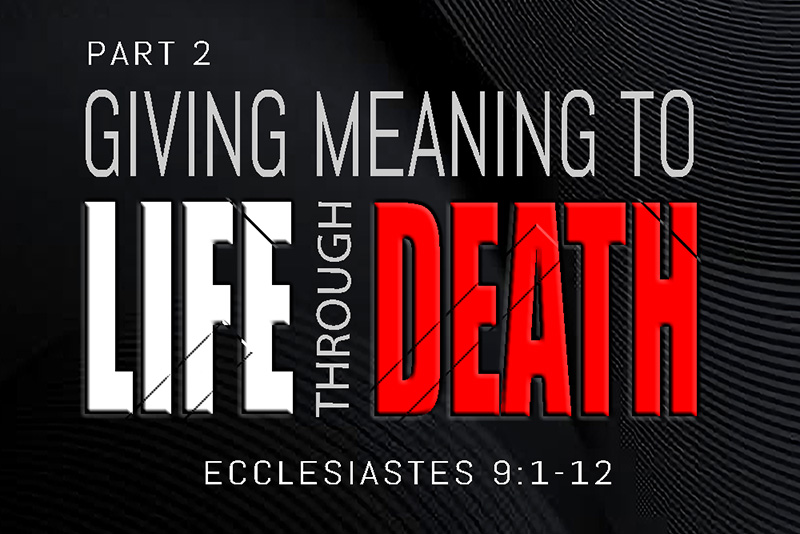
Ecclesiastes, written by King Solomon, is often misunderstood as suggesting that life has no meaning or value. It portrays a world filled with unpredictability and chaos—where, despite our best efforts to control outcomes, things often don’t go as planned. To make matters more sobering, Ecclesiastes highlights that for most, death is an unavoidable reality.
Depressing? If that were the book’s only message, it certainly would be. But there is much more to the story. Ultimately, Ecclesiastes offers wisdom not just for surviving but for thriving in a fleeting and unpredictable world.
Rich Robson provides a detailed explanation of Ecclesiastes 9:1-12, summarizing its key themes: the unpredictability of life, the fleeting nature of human efforts, and how to live well despite these realities. He emphasizes that while death has been the common fate of humanity, God calls us to embrace the gifts He has given us. Life’s simple pleasures—food, drink, relationships—are all blessings from a generous God who delights in seeing His people enjoy them.
Solomon’s perspective was based on the knowledge available in his time, but as believers today, we have the greater revelation that when Christ appears, some will not experience death but will be transformed in an instant, as stated in 1 Corinthians 15:51-52 and 1 Thessalonians 4:16-17. This hope of resurrection and eternal life goes beyond the wisdom of Ecclesiastes, inspiring us to live with purpose, engage in good works, and prioritize spiritual matters over temporary concerns. At Christ’s appearing, both the resurrection of those who have died in Christ and the transformation of those who are alive will occur. The dead will be raised incorruptible, and the living will be changed in a moment, all being united with the Lord in glory. This powerful truth ensures that believers, whether dead or alive, will experience the fullness of God’s eternal promise.
